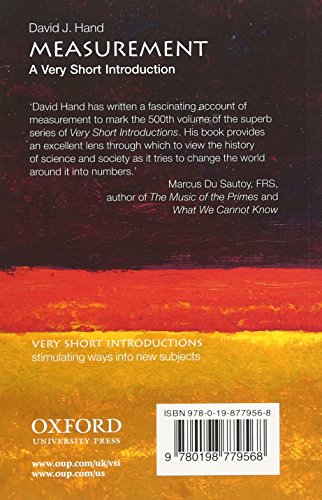Questa è la pagina dedicata a David J. Hand.
In questa pagina troverai 5 prodotti, tra cui “Il tradimento dei numeri. I dark data e l’arte di nascondere la verità”.
Il tradimento dei numeri. I dark data e l’arte di nascondere la verità
Chiunque si occupi di raccolta e analisi dei dati lo sa bene, o almeno dovrebbe: le informazioni che non conosciamo possono essere altrettanto importanti di quelle che abbiamo a disposizione. Ha senso affermare che un prodotto è efficace perché ha solo recensioni favorevoli? Ed è davvero possibile prevedere il buon esito di un trattamento medico sulla base di un campione che, per quanto ampio, non corrisponde alla totalità dei casi? Considerazioni analoghe si possono applicare alla nostra vita di tutti i giorni: perché invidiare una persona per i successi messi in mostra sui social network, quando i suoi fallimenti ci vengono opportunamente nascosti? In un’epoca dominata dai big data, conviene prestare maggiore attenzione al rovescio della medaglia, ovvero ai dati che sappiamo di non avere o – peggio ancora – che crediamo erroneamente di possedere. Simili alla materia oscura che elude le rilevazioni dei cosmologi, i dark data influenzano ogni campo di studio e di lavoro, dalla ricerca medica all’industria, dalle politiche pubbliche e sociali al settore finanziario, e sono molto più numerosi di quanto pensiamo. Sottostimarli è dunque un grave rischio, che può portare a costruire modelli fuorvianti e inesatti, con conseguenze talvolta catastrofiche. Al contrario, smascherare questi numeri «traditori» e imparare a gestire i problemi che essi provocano può portare vantaggi nella nostra sfera professionale e in quella personale. I dark data ci insegnano, infatti, a capovolgere il modo di considerare l’analisi dei dati, facendoci comprendere più a fondo l’universo dell’informazione e ad affrontare l’imprevedibile in maniera più consapevole e ponderata.
Opinioni:
In un’epoca dominata dai big data, conviene prestare maggiore attenzione al rovescio della medaglia, ovvero ai dati che sappiamo di non avere o – peggio ancora – che crediamo erroneamente di possedere. – LaFeltrinelli
Il caso non esiste. Perché le cose più incredibili accadono tutti i giorni
Il 21 dicembre 1988, John Wood cancellò la sua prenotazione sul volo Pan Am 10 – che sarebbe esploso di lì a poco sopra la cittadina di Lockerbie, in Scozia – perché si era lasciato trascinare a una festa aziendale; il 26 febbraio 1993, l’avvocato era nella sua stanza al trentanovesimo piano di una delle Torri Gemelle quando un’autobomba deflagrò alla base dell’edificio; l’11 settembre 2001 lasciò il suo ufficio appena prima degli attentati. È innegabile: a volte si verificano fatti che appaiono così improbabili, inattesi e inverosimili da far pensare che nell’universo ci sia qualcosa che non comprendiamo. Di sicuro ci fanno dubitare del fatto che a spiegarli sia sufficiente un’accidentale confluenza di eventi, e spesso ci inducono a ipotizzare l’esistenza di forze invisibili che governano il corso delle cose. Ma perché ciò che è universalmente riconosciuto come molto improbabile accade di continuo? A prima vista sembra una contraddizione, ma non è così: ci sono persone che vincono la lotteria più volte, fulmini che colpiscono ripetutamente lo stesso, sfortunatissimo uomo… A chi non è mai capitato di pensare a una persona e subito dopo ricevere una sua telefonata? O di avere un sogno premonitore? In questo saggio, David Hand ci conduce attraverso il territorio assai sfuggente della probabilità, e lo fa parlandoci di economia, di psicologia della percezione e di fisica contemporanea, ma anche di obbligazioni, di lotterie e gatti neri.
Dark Data: Why What You Dont Know Matters
A practical guide to making good decisions in a world of missing data In the era of big data, it is easy to imagine that we have all the information we need to make good decisions. But in fact the data we have are never complete, and may be only the tip of the iceberg. Just as much of the universe is composed of dark matter, invisible to us but nonetheless present, the universe of information is full of dark data that we overlook at our peril. In Dark Data, data expert David Hand takes us on a fascinating and enlightening journey into the world of the data we don’t see. Dark Data explores the many ways in which we can be blind to missing data and how that can lead us to conclusions and actions that are mistaken, dangerous, or even disastrous. Examining a wealth of real-life examples, from the Challenger shuttle explosion to complex financial frauds, Hand gives us a practical taxonomy of the types of dark data that exist and the situations in which they can arise, so that we can learn to recognize and control for them. In doing so, he teaches us not only to be alert to the problems presented by the things we don’t know, but also shows how dark data can be used to our advantage, leading to greater understanding and better decisions. Today, we all make decisions using data. Dark Data shows us all how to reduce the risk of making bad ones.
Statistics: A Very Short Introduction
Modern statistics is very different from the dry and dusty discipline of the popular imagination. In its place is an exciting subject which uses deep theory and powerful software tools to shed light and enable understanding. And it sheds this light on all aspects of our lives, enabling astronomers to explore the origins of the universe, archaeologists to investigate ancient civilisations, governments to understand how to benefit and improve society, and businesses to learn how best to provide goods and services. Aimed at readers with no prior mathematical knowledge, this Very Short Introduction explores and explains how statistics work, and how we can decipher them. ABOUT THE SERIES: The Very Short Introductions series from Oxford University Press contains hundreds of titles in almost every subject area. These pocket-sized books are the perfect way to get ahead in a new subject quickly. Our expert authors combine facts, analysis, perspective, new ideas, and enthusiasm to make interesting and challenging topics highly readable.
Measurement: A Very Short Introduction
Measurement is a fundamental concept that underpins almost every aspect of the modern world. It is central to the sciences, social sciences, medicine, and economics, but it affects everyday life. We measure everything – from the distance of far-off galaxies to the temperature of the air, levels of risk, political majorities, taxes, blood pressure, IQ, and weight. The history of measurement goes back to the ancient world, and its story has been one of gradual standardization. Today there are different types of measurement, levels of accuracy, and systems of units, applied in different contexts. Measurement involves notions of variability, accuracy, reliability, and error, and challenges such as the measurement of extreme values. In this Very Short Introduction, David Hand explains the common mathematical framework underlying all measurement, the main approaches to measurement, and the challenges involved. Following a brief historical account of measurement, he discusses measurement as used in the physical sciences and engineering, the life sciences and medicine, the social and behavioural sciences, economics, business, and public policy. ABOUT THE SERIES: The Very Short Introductions series from Oxford University Press contains hundreds of titles in almost every subject area. These pocket-sized books are the perfect way to get ahead in a new subject quickly. Our expert authors combine facts, analysis, perspective, new ideas, and enthusiasm to make interesting and challenging topics highly readable.
Se volessi saperne di più, dai un’occhiata al nostro canale Youtube!
- Libri sul Manchester terrier (razza di cane)
- Migliori mini telai telati magnetici | Prezzi, recensioni e consigli
- Libri interessanti per ragazzi di 13 anni migliori da leggere e consigliati
- Romanzi per amanti dell’arte Migliori da leggere e consigliati
- Libri di Christian Rudder migliori da leggere e consigliati

















Lascia un commento
Devi essere connesso per inviare un commento.